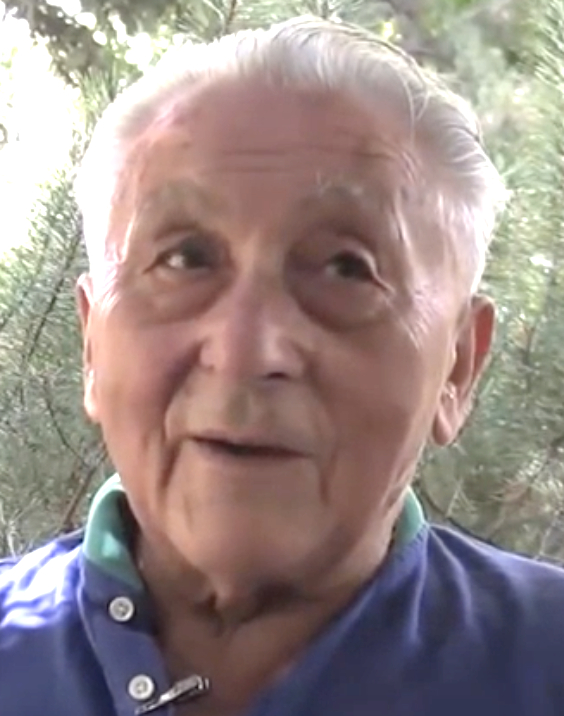On this date in 1929, atheist Walter Plywaski (né Wladyslaw Plywacki), who won a landmark court case on religious oaths, was born in Łódź, Poland, to Regina and Maksimilian Plywacki. The family lived above the pharmacy his parents operated. His father, a socialist and former cavalry officer, was a religious agnostic of Jewish descent. His mother was raised in Orthodox Judaism.
Religion was not a significant influence in his upbringing, Plywaski said, recalling theological discussions with his father. “He wanted me to be a debater, so I read theologians like St. Augustine and Pascal to sharpen my skills.” (Intermountain Jewish News, Jan. 6, 2011)
The family’s world fell apart in 1939 when Germany invaded and forced Jews and persons of Roma descent into a ghetto in Łódź. They arrived in a railroad freight car at Auschwitz-Birkenau on Plywaski’s 15th birthday in 1944. His mother soon ended up in a line leading to the gas chamber. He would see his father beaten to death by a Nazi camp commander. He later said Auschwitz turned him into an atheist (see quote below).
Prisoners were moved from camp to camp as it became clear to the Germans that the war was lost. One extermination method was to lock barracks doors or nail them shut, douse buildings with fuel and set them afire. In 1945 Plywaski was among over 30,000 liberated by U.S. troops from Dachau.
He worked as an interpreter for the Americans and emigrated to the U.S. in 1947. He served four years in the U.S. Air Force before completing a degree in electrical engineering at Oregon State University, then worked for 18 years for the National Oceanic and Atmospheric Administration and for defense contractors before starting an electronics design company.
His petition for U.S. citizenship while living in Hawaii in 1952 was denied by a judge after Plywaski told him that as an atheist he could not end the oath with “so help me God” and requested an alternative affirmation. The judge refused. Plywaski moved to Oregon, and with the help of the American Civil Liberties Union, prevailed in court in 1955 and was granted citizenship.
Before divorcing, he and his wife had three daughters: Cybele, Ariel and Gabriella. His Boulder, Colorado, home was destroyed by wildfire in 2010, a loss he accepted. “I have lost more before. It’s almost like water off a duck’s back when you compare it to the Holocaust.”
Plywaski, who spoke six languages, was actively involved with Boulder Atheists along with speaking to students in elementary and secondary schools and colleges about the Holocaust. Before the 2020 election, he appeared in a No Bystanders video that got 2.2 million views about the importance of voting against hatred and fear.
He died at age 91 at Sunrise Senior Living in Boulder. (D. 2021)


